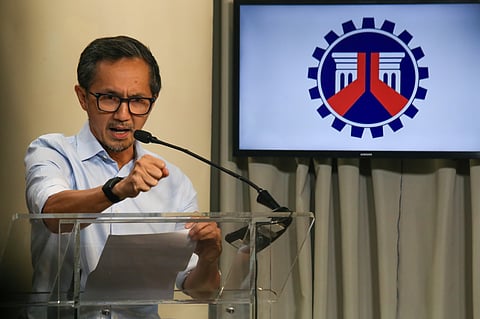
- NEWS
- the EDIT
- COMMENTARY
- BUSINESS
- LIFE
- SHOW
- ACTION
- GLOBAL GOALS
- SNAPS
- DYARYO TIRADA
- MORE

Public Works Secretary Vince Dizon has ordered a two-week suspension of all bidding for local projects nationwide as he organizes the team that will put in stronger safeguards in the contracting process.
“I will order today a pause to the ongoing bidding for all locally funded projects nationwide because we have to review them based on the President’s directive to clean house,” Dizon told reporters on Wednesday, following the ceremonial turnover of leadership at the Department of Transportation.
“The President does not want any more money from the government, from the DPWH, thrown in the rivers. I’m giving our new team two weeks maximum to add safeguards to our processes,” he said.
Dizon said the pause is a necessary step to ensure that infrastructure programs are not just fast-tracked but also safeguarded against waste and corruption. He assured that the bidding will resume after two weeks, with improved processes in place.
He stressed the DPWH must overhaul its processes to win back the public trust and put an end to questionable and substandard projects.
The suspension covers flood control, road and other infrastructure projects funded through the national budget and carried out by DPWH’s national, regional and district offices.
Dizon said foreign-assisted projects will continue as scheduled since these are subject to stricter oversight by international funding institutions.
“Those projects, we are assured that they are properly bid out because the foreign funders are watching,” he said.
The new DPWH chief emphasized the review will focus on strengthening internal controls, tightening bidding procedures, and addressing loopholes that may have allowed anomalies in procurement.
On Tuesday, Dizon said the DPWH will prepare to rebid contracts flagged in recent validations as it seeks to resolve questionable infrastructure deals and restart stalled flood control projects.
He said the government aims to act quickly, citing the urgency of addressing the flooding problem. He noted that not all projects could be pursued under public-private partnerships, with the government still reviewing the best options to move the work forward.
